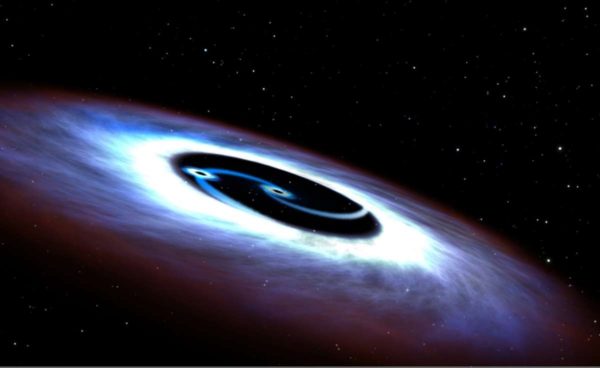"If you've seen one gamma-ray burst, you've seen one gamma-ray burst!" -Common quote among gamma-ray burst astronomers, emphasizing how little we know about them.
When the first gravitational wave signal ever, GW150914, was directly detected, NASA’s Fermi GBM team shocked the world by announcing the detection of a high-energy burst of electromagnetic radiation. This was a huge surprise, because merging black holes shouldn’t have a bright gamma ray or X-ray flash associated with them!
A statistical reanalysis and the ESA’s INTEGRAL satellite both failed to confirm it, but it would take a second event to know for certain. With GW151226 now in the books, a look through the Fermi GBM data shows what we suspected all along: black holes DON’T burst when they merge!



Just a thought that came into my head...
Ethan has quite an interest in black holes.
Four of his last nine articles are about them.
If it’s not a fondness, it’s certainly a fascination and acceptance.
Which is somewhat ironic.
Black holes are really quite “mean” and “unforgiving”. *Anything* that was to go into a black hole NEVER gets out. Even if it’s an “innocent” beam of light.
*Even if* it’s an *innocent* you.
You NEVER will get out.
It’s quite a concept.
I say ironic because I’m pretty confident Ethan would have no similar interest in, nor acceptance of, the concept of Hell.
How does Hell's evaporative timescale compare with $latex t=8.4\times10^{-17}M^3$ s?
@Deceiver #1: "Ironic"? It's his _job_, you bloody imbecile. Ethan is a professional astrophysicist.
You, on the other hand, must have an inordinate fondness (or at least a fascination and acceptance), for the underside of bridges.
Ethan, I suspect merging BH with accretion disks have been modeled. Just how much mass would need to be in the disk(s) to make a signal detectable at 1.e9 lightyears?
Not ironic at all (even as you don't seem to know the meaning of ironic). Ethan is, after all, a scientist, and so has a reason to be interested in the sorts of things science, especially his area of science, studies.
On the contrary, the hell to which you refer is the stuff of mythology, dragged out to scare children and the weak-minded in order to keep them in line.
It's possible that Ethan would write about Hell if theologians ever got around to defining what Hell is, building a Hell detector, and successfully recording the screams of the damned.
<S.N.>Doesn't Hell violate the principle of conservation of energy?</S.N.>